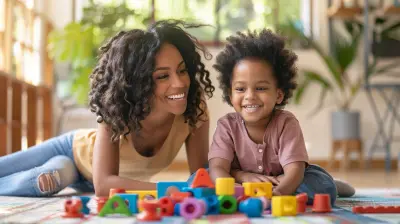Celebrating Differences: How Inclusion Boosts Confidence
21 April 2025
Let’s face it—nobody wants to feel like the odd one out. Whether it's in school, the workplace, or even at a family gathering, that feeling of being "different" can be isolating. But here’s the kicker: differences aren’t flaws. In fact, they’re superpowers.
When we embrace inclusion, we don’t just create a nicer environment—we build confidence, self-worth, and a sense of belonging for everyone involved. So, grab a cup of coffee (or wine, no judgment here) and let’s talk about why celebrating differences is the secret sauce to raising confident kids and creating a more accepting world.
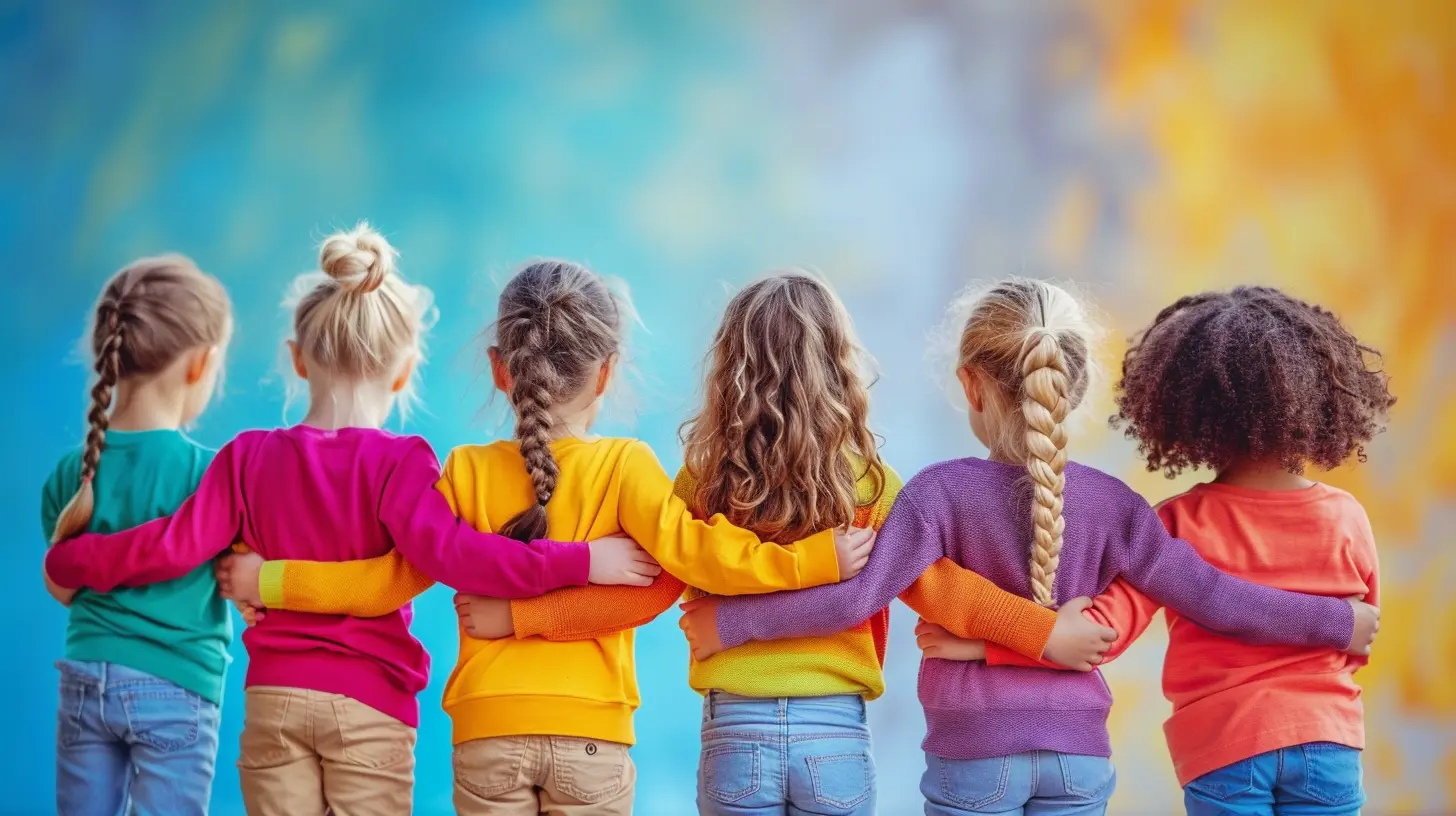
What Is Inclusion, Really?
Before we get ahead of ourselves, let’s break it down. Inclusion isn’t just about being "nice" to people who are different from us. It’s an active effort to make sure everyone—regardless of ability, race, gender, neurodiversity, or background—feels valued, accepted, and heard.It’s the difference between:
🚫 Saying, "Everyone is invited to the party, but they can’t play the games."
✅ Saying, "Everyone is invited, and we're making sure the games work for everyone."
See the difference? Inclusion is about more than just having a seat at the table—it’s about making sure everyone can actually enjoy the meal.
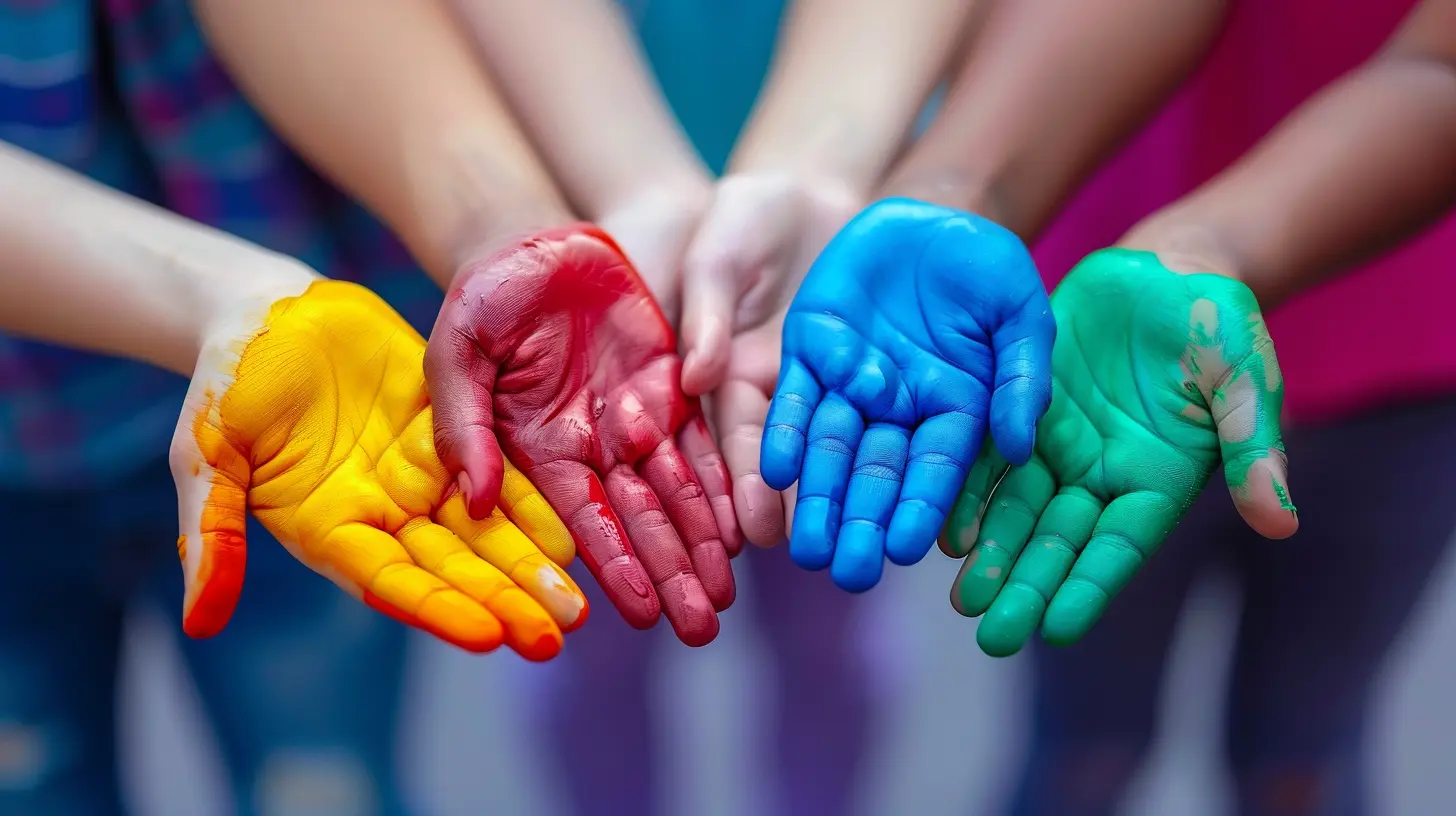
Why Inclusion Matters More Than Ever
We live in a world that’s obsessed with perfection. Social media bombards us with picture-perfect lives, kids feel pressured to "fit in," and adults are constantly trying to live up to unrealistic expectations. But here’s the reality check: Perfection is a myth.By fostering inclusion, we teach our kids (and remind ourselves) that it’s okay to be different. And that confidence? It skyrockets when we stop trying to mold ourselves into something we’re not.
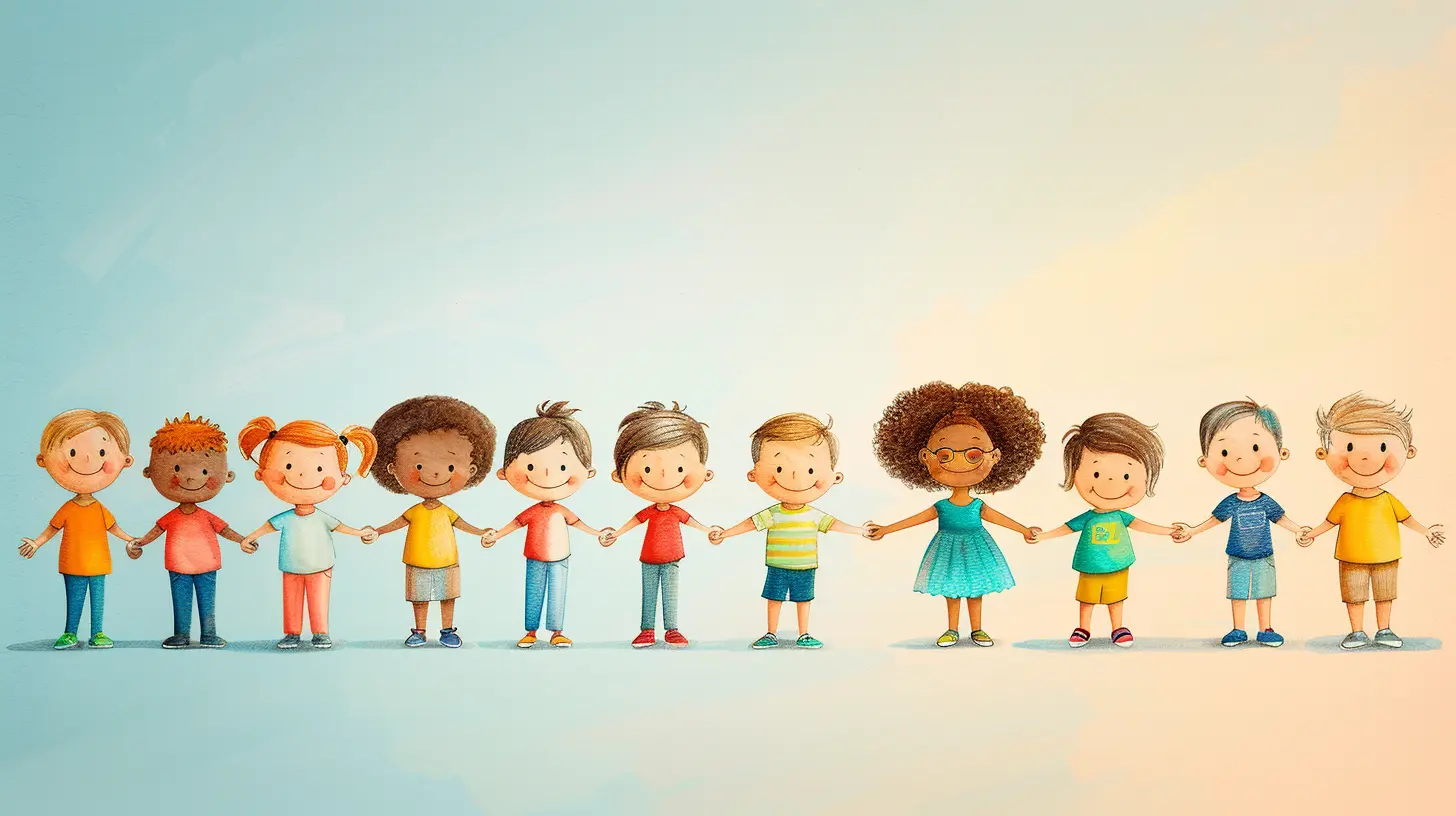
The Confidence-Inclusion Connection
Now, let’s get to the juicy part—how inclusion directly boosts confidence. Spoiler alert: It’s life-changing.1. Feeling Seen and Heard
Nothing crushes confidence faster than feeling invisible. When kids (or adults) are included, they realize that their voice matters. They feel valued, respected, and, most importantly, heard.When a child with autism is given the right support in the classroom, when a child in a wheelchair is encouraged to participate in sports, or when a kid struggling with social anxiety isn’t pushed aside—confidence grows like a well-watered garden.
2. Breaking the Fear of Standing Out
Raise your hand if you ever pretended to like something just to fit in. (Yep, guilty as charged.) The fear of being "different" is real, but when we normalize inclusion, we show kids that standing out isn’t a bad thing—it’s actually a strength.Think about the most confident people you know. Chances are, they’re not the ones blending in with the crowd. They're the ones embracing what makes them unique.
3. Encouraging Empathy
Let’s be real—kids learn by watching us. When they see inclusion in action, they learn empathy, kindness, and understanding. And guess what? Empathy builds confidence, too.When kids understand that differences aren’t something to fear but rather something to celebrate, they stop trying to shrink themselves to "fit in." Instead, they lift others up—creating an environment where confidence flourishes.
4. Reducing Bullying and Judgment
A huge confidence killer? Bullying. And unfortunately, kids who are perceived as "different" are often the biggest targets.But here’s the good news: Inclusion can reduce bullying. When kids grow up in an environment where differences are embraced, they’re less likely to judge or exclude others. The result? A safer, more accepting space where everyone feels secure in who they are.
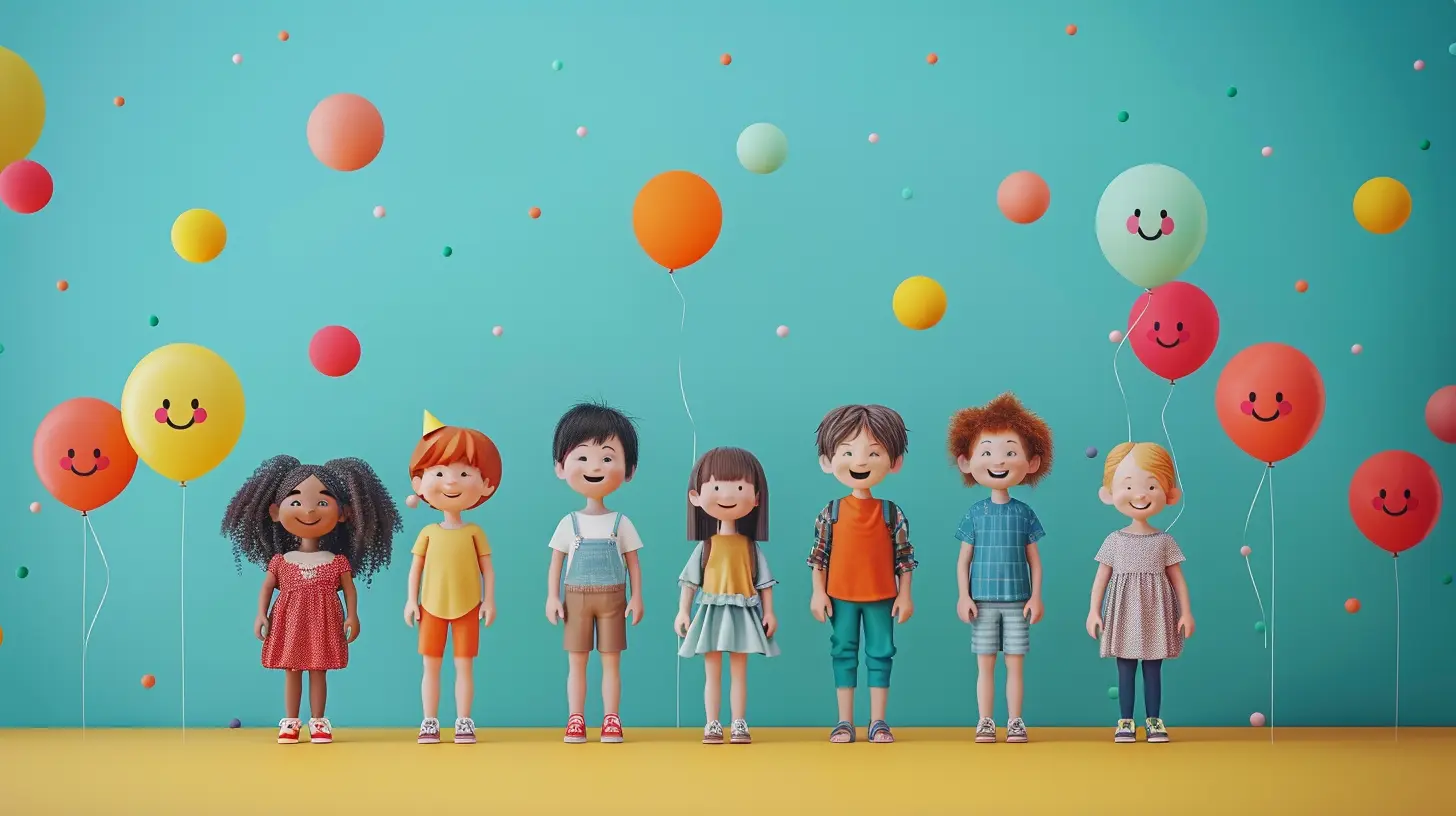
How Parents Can Foster Inclusion at Home
Alright, parents, this is where you come in. If we want our kids to be confident and accepting, it starts with us. Here’s how you can champion inclusion every day:1. Normalize Differences
Talk about diversity in everyday conversations. Whether it’s through books, movies, or real-life situations, highlight how our differences make the world a better place.– Got a friend who uses a wheelchair? Explain why accessibility matters.
– Watching a show featuring a neurodivergent character? Discuss what that means.
– Notice your child pointing out something “different” in someone else? Use it as a teachable moment.
The more we normalize differences, the less they become something to "fear" or "other."
2. Teach Kindness and Empathy
Kindness isn’t just about saying "please" and "thank you"—it’s about taking action. Teach your kids to stand up for others, include classmates who might feel left out, and treat everyone with respect.And hey, let’s not just tell them—let’s show them. Kids mimic what they see, so let’s lead by example.
3. Encourage Friendships with Diverse Peers
Diversity isn’t just about race or culture; it’s about different abilities, backgrounds, and perspectives. Encourage your child to form friendships with kids who might not look, think, or act exactly like them.Playdates, shared activities, and inclusive school programs can all help build these connections. And trust me, it’ll do wonders for their confidence and social skills.
4. Advocate for Inclusive Spaces
Here’s a reality check: Not all schools, playgrounds, and extracurricular activities are built with inclusion in mind. If you see something that needs to change, speak up.– Push for accessible playgrounds.
– Support inclusive education programs.
– Encourage schools to adopt anti-bullying policies that protect all children.
Our voices matter. And when we advocate for inclusion, we’re not just helping our kids—we’re helping shape a better world.
Inclusion in Schools: Why It’s a Game-Changer
Let’s talk about school—because let’s be honest, that’s where kids spend most of their time.Inclusive schools don’t just benefit children with disabilities or learning differences—they benefit everyone. When kids learn in diverse environments, they develop problem-solving skills, emotional intelligence, and the ability to work with people from all walks of life.
And let’s not forget confidence! Kids in inclusive classrooms are more likely to:
✔️ Feel accepted for who they are
✔️ Develop strong self-esteem
✔️ Embrace leadership roles
✔️ Support and uplift their peers
In short, inclusion doesn’t just help a few—it helps all kids find their voice and feel like they belong.
The Ripple Effect of Inclusion
Here’s the beautiful thing—when we make inclusion the norm, confidence doesn’t just grow in one individual. It spreads like wildfire.A confident child becomes a confident adult. A confident adult becomes a leader. And leaders who embrace inclusion create companies, schools, and communities where everyone thrives.
So, if we truly want a better world (and let’s be honest, we do), it starts with celebrating differences—at home, at school, and in the workplace. Because when we lift each other up, there’s no limit to what we can achieve.
Final Thoughts
Inclusion isn't a trend or a "nice idea"—it's a necessity. When we celebrate differences, we create spaces where everyone, no matter their background or abilities, feels valued and confident.So, whether you're parenting, teaching, or just being a decent human, remember this: Inclusion isn't just about the person being included—it's about all of us growing together. And honestly? That’s a world worth fighting for.
all images in this post were generated using AI tools
Category:
Building ConfidenceAuthor:

Zelda Gill
Discussion
rate this article
4 comments
Abigail Webster
Inclusion plays a crucial role in nurturing children's confidence. By celebrating differences, we teach kids empathy and acceptance, helping them appreciate diversity. This foundational understanding not only strengthens their self-esteem but also fosters a more compassionate and inclusive community for everyone.
April 26, 2025 at 2:20 PM

Zelda Gill
Thank you for your insightful comment! You're absolutely right—celebrating differences is essential for building empathy and self-esteem in children, ultimately creating a more compassionate community.
Dominique Bailey
Embracing differences truly nurtures our children's hearts.
April 26, 2025 at 4:33 AM

Zelda Gill
Absolutely! Embracing differences enriches children's understanding and fosters empathy, helping them grow into confident, compassionate individuals.
Lauren McCune
What a fantastic read! Celebrating our children's unique differences really does wonders for their confidence. It's so important to create an inclusive environment where every child feels valued. Let's embrace those quirks and teach our kids that our diversity is what makes us all special and strong!
April 23, 2025 at 4:29 PM

Zelda Gill
Thank you for your insightful comment! I completely agree that embracing our children's unique differences fosters confidence and builds a stronger, more inclusive community.
Xeno Roberts
Embracing diversity nurtures resilience and fosters true belonging.
April 22, 2025 at 2:54 AM

Zelda Gill
Absolutely! Embracing diversity not only strengthens our communities but also empowers individuals, creating a sense of belonging that boosts confidence and resilience.

